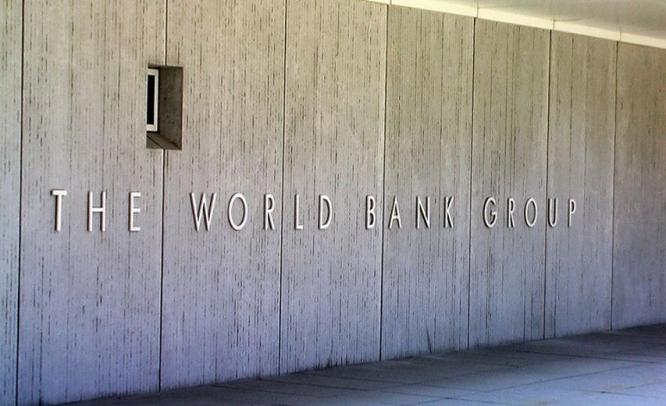The World Bank studies recommended bringing Tajikistan’s financial consumer protection regime closer to international good practices. One proposal is to assign responsibility to the National Bank of Tajikistan .
July 29, 2013 : Consumer protection is essential for any financial system to function effectively – it not only protects existing consumers but also encourages potential consumers by instilling confidence in a country’s financial system. In developing economies, consumer protection is particularly important for low-income consumers who often have limited financial service experience and lower financial literacy levels.
On June 25, the National Bank of Tajikistan hosted a workshop on Consumer Protection and Financial Literacy in Dushanbe, where a World Bank team of financial sector specialists presented the key findings and recommendations from two studies – a diagnostic study on consumer protection in financial services, and a survey report on the level of financial literacy in Tajikistan.
The World Bank studies are based on international good practices of an effective financial consumer protection regime:
- The legal framework should provide clear consumer protection rules regarding financial products and services, and a financial supervisory agency or consumer protection agency should monitor and enforce the rules.
- Financial institutions should be required to disclose information to consumers that is complete, accurate, and in a format that they can understand.
- Consumer protection must cover a range of business practices, including sales methods, competition, debt collection, and information protection.
- Consumers should have access to affordable and efficient dispute resolution mechanisms, both within the financial institution and externally.
- Financial literacy is important so consumers understand financial products and services before buying them, and understand their rights and obligations as consumers.
The diagnostic study found that a general consumer protection law exists in Tajikistan, but it lacks the detail to make it applicable to financial institutions. The law includes a provision for protection of the confidentiality of consumer information, but the common perception is that it is not widely enforced.
Financial institutions generally provide information to consumers, but not necessarily in a simple, standardized format that allows comparisons with other financial institutions. The microfinance industry supports a code of conduct for its members, but no such codes exist for the banking and insurance industries.
Enforcement of the existing rules is irregular because no government agency has a clear mandate over consumer protection in financial services and no resources have been allocated for this. Financial literacy is also low, particularly in rural areas.
The World Bank studies recommended bringing Tajikistan’s financial consumer protection regime closer to international good practices. One proposal is to assign responsibility to the National Bank of Tajikistan to monitor and enforce consumer protection in financial services and to develop a national financial education strategy.
Consumer protection is not only good for consumers, but also for financial institutions.
Brett Coleman
Senior Financial Sector Specialist, World Bank
At the Dushanbe workshop, Brett Coleman, lead author of the diagnostic study, stressed how consumer protection is not only good for consumers, but also for financial institutions themselves. Financial institutions can benefit from consumer protection in three important ways:
- Consumers who are literate and informed of their rights also understand their obligations; consumers who understand their obligations are more likely to fulfill their obligations.
- Consumer protection encourages financial sector stability since excessive lending and over-indebtedness are discouraged.
- When financial institutions set industry standards for their members, through codes of conduct for example, and require that all financial institutions meet those standards, they protect the reputation of the entire industry. This encourages more of the population to use their services.
World Bank Country Manager for Tajikistan, Marsha Olive, emphasized the contribution that consumer protection in financial services can make towards providing equal opportunities for everyone. “It is widely perceived in Tajikistan,” said Ms. Olive, “that opportunities vary greatly across the population. Consumer protection in financial services ensures that all customers are treated equally, with the same rights, according to the rules, rather than catering to the privileged few while ignoring the rights of the rest.”
GIZ Program Director, Reinhard Woytek, highlighted the importance of responsible finance in consumer protection, pointing out that “Responsible finance is one of the building blocks for better consumer protection. Better consumer protection is a precondition for increased savings. Increased domestic savings can contribute to lower credit cost.”
Chairman of the National Bank of Tajikistan, Abdujabbor Shirinov, opened the workshop and spoke about the need to foster public confidence and attract investment to Tajikistan. He stressed that, “The existence of an adequate system of consumer protection fosters public confidence in financial institutions, the inflow of deposits, and the growth of the financial sector, while in the long run it will help improve the sovereign rating and investment attractiveness of the country.”
The Dushanbe workshop was attended by about 70 delegates representing Tajik ministries and other government agencies, banks, microfinance organizations, insurance companies, and civil society. The World Bank and GIZ both offered to continue working with the National Bank of Tajikistan and the government to help implement the studies’ recommendations.
source:World Bank

